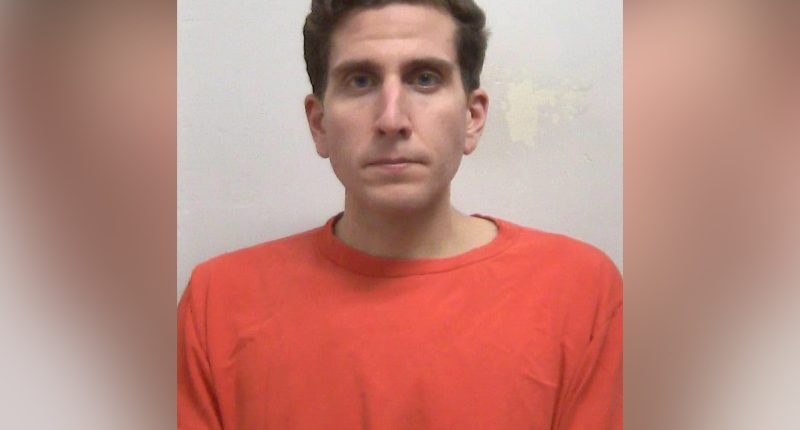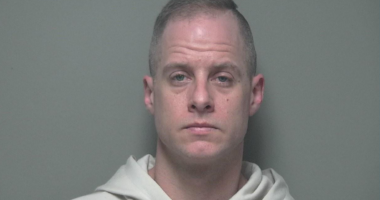Share this @internewscast.com
The enigma surrounding the murders of four University of Idaho students came to a conclusion last week when Bryan Kohberger chose to plead guilty to four counts of first-degree murder and one count of burglary.
On July 2, 2025, in a crowded courtroom in Idaho, Kohberger confessed that he “willfully, unlawfully, and deliberately with premeditation and malice of forethought” entered the off-campus residence in Moscow, Idaho during the early morning of Nov. 13, 2022, and viciously stabbed four of the occupants to death.
But the reason for the brazen killings of Madison Mogen, Kaylee Goncalves, Xana Kernodle and Ethan Chapin remains unclear.
Although Kohberger has not publicly provided a rationale for the horrific stabbings, the new Peacock documentary The Idaho Student Murders investigates the events surrounding the killings, offering fresh insight into what might have motivated him to commit such acts.
Fascination with Criminology
Kohberger’s interest in crime began long before the 2022 slayings, possibly sparking a fascination with murder.
The Pennsylvania native received a graduate degree in criminology from DeSales University in Center Valley, Pennsylvania, where he worked alongside famed forensic psychologist Katherine Ramsland.
Ramsland, who was one of Kohberger’s professors at the school, is known for her work studying some of the country’s most elusive serial killers and has even corresponded for years with Dennis Rader, known to many as the BTK serial killer.
According to Howard Blum, a participant int he documentary who studied the case for his book When The Night Comes Falling, Kohberger idolized Ramsland and wanted to understand how the criminal mind works.
In one of Kohberger’s graduate classes, for instance, he wrote a paper on how to process a crime scene, proving that he fully understood how crimes were both investigated and processed.
Although Ramsland initially declined to comment on the case for months, she told NewsNation after Kohberger’s guilty plea last week that even she wondered whether the criminology coursework had laid the ground work for his future crime.
“I have to look at the framework of what I taught and wonder, did I inspire him in some way?” she asked.
At the time of the murders, he was pursuing a doctorate degree in criminology at Washington State University, where he continued to delve into his criminology studies.
“Was it this desire to be a good guy and investigate crimes? Or was it a desire to understand his own motivations, his own demons?” Jarrett Ferentino, a homicide prosecutor, questioned in the documentary.
Reports of trouble with women
Those who’ve studied or interacted with Kohberger have also reported that he struggled in his relationships with women, whether it was at work as a teaching assistant at Washington State University or in his own dating life.
One female student at Washington State University — who asked not to be identified out of fear — took a class where Kohberger served as a teaching assistant and described him in the documentary as being difficult to work with.
“As a teacher’s assistant, Bryan was very smart but a lot of people considered him like a harsh grader, especially towards women,” she said. “And a lot of the females said that he was sexist and he was disrespectful.”
According to Blum, just 11 days before the murders, Kohberger was given a warning by his professor after receiving multiple complaints from female students at the school. The professor allegedly told Kohberger that his position as a teaching assistant at the school was in jeopardy if the complaints continued.
“Is it possible that when Bryan Kohberger found out that women had complained about him at Washington State University that this somehow triggered him carrying out these murders?” journalist Angenette Levy wondered.
Kohberger also appeared to have trouble connecting with women in a social context.
Hayley Willette took to social media to describe a date she allegedly had with Kohberger, whom she had matched with on Tinder. After Willette invited him back to her apartment, she described him trying to touch and tickle her. She eventually excused herself and went to the bathroom, where she pretended to throw up in order to abruptly end the date.
“Later that night she says she gets a text where he allegedly says, ‘Thanks for the date. I had a wonderful time, and you have great birthing hips,’” Blum explained of the awkward interaction.
The owner of a local brewery near DeSales University also described Kohberger as getting “really annoyed” when females at the bar didn’t return his affections, according to the special.
When all these reports were taken together, Jennifer Coffindaffer, a retired FBI special agent, noted that Kohberger appeared to have “a lot of traits of an incel” or someone who is involuntarily celibate.
“He seemed like someone who led the life of somebody who was rejected by women, yet had a very high self worth in some regards,” she said.
She questioned whether Kohberger had taken out some of his “rage” against women in the murders of Mogen, Goncalves and Kernodle, whom she described as being “stunning young women.”
“Women that walk into a room and people take notice. This is in part what causes the rage because incels believe that they are entitled to women like this, only they can’t have women like this,” she explained. “This case, in my view, was absolutely a femicide. It was a crime against women.”
Was Kohberger stalking his victims?
Although attorneys have said there was no evidence or social media activity to connect the doctoral student to his four victims, some have questioned whether he may have crossed paths with the college students before their deaths and specifically targeted them.
For instance, cell phone records placed Kohberger within 100 meters of the home on King Road where the murders took place 23 times in the months before the slayings, according to the Peacock special.
“This is viewed in the realm of serial killers as a game,” Ferentino said. “It is possible he was surveilling, planning a strategy to carry out these killings?”
Those familiar with the case also pointed out that Mogen and Kernodle both worked as waitresses at Mad Greek, a Moscow restaurant known to serve vegan options.
By the time Kohberger had moved to nearby Pullman, Washington, he had been a vegan for years.
“There’s been a lot of speculation that Bryan Kohberger possibly could have met Maddie or Xana or happened upon them at that restaurant,” Levy said in an interview before Kohberger’s guilty plea was filed. “The prosecution might say that Bryan Kohberger became obsessed with Maddie at the Mad Greek and maybe even Xana. We just don’t know.”
At the plea hearing last week, Latah County Prosecutor Bill Thompson said that on the morning of the murders, Kohberger entered the King Road home and went straight to Mogen’s bedroom, where he found Mogen and Goncalves sharing a bed together and killed both women, leaving a knife sheath behind that bore his DNA, People reported.
Kohberger was then either “coming down the stairs or leaving” when he ran into Kernodle and killed her and Chapin, who was staying in her room. The details suggest that Mogen or Goncalves — who was no longer living in the house and had only returned for a visit — were the initial target of the violence.
According to the documentary, Mogen had a pair of pink cowboy boots clearly visible in her window to mark her bedroom in the house.
“We will not represent that he intended to commit all of the murders that he did that night, but we know that that is what resulted,” Thompson said in court.
‘Just a blank soul’
Kohberger himself may have also given a clue to the inner workings of his mind and his struggle to have compassion for others years before the slayings.
At the age of 15, Kohberger was allegedly experiencing problems with a condition known as visual snow, a phenomenon where people see tiny black and white spots in their vision much like static on a television set.
According to the documentary, the condition can lead to higher rates of depression, anxiety, or sleep disturbances.
It’s believed that Kohberger may have taken to an online forum at the time to vent about his symptoms, saying according to Levy, who read the posts in the documentary, that he found “no joy in life” and felt like he could “do whatever I want with little remorse.”
“Something major is wrong with me,” the post read. “I am just a blank soul.”
While these factors — or a combination of them — may have played some role in Kohberger’s decision to commit the murders, experts can’t be sure exactly what drove the 30-year-old that night.
It’s possible that Kohberger could answer that question himself during his sentencing in court, scheduled to to be held July 23, 2025, but until then it remains a mystery.
“We don’t know why this happened, but we do know that it was a tragedy,” defense attorney Imran H. Ansari concluded in the documentary.
The Idaho Student Murders is streaming now on Peacock.











